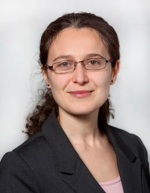 Angela Carabas, Romania
Angela Carabas, Romania
General Director Treasury and Public Debt Department, Ministry of Public Finance & Alternate Board Member European Investment Bank
Young Leaders Program (’06)
Angela Carabas has worked more than eight years in the Ministry of Public Finance, being involved in drafting documents, legislation and positions related to public debt issues, relations with international financial institutions and with the banking sector. Recently she was part of the technical team discussing the IMF/ EU/ WB external financing packages for Romania. Since January 2010 she is general director of the treasury and public debt department, as well as alternate Board member with the European Investment Bank.
Angela graduated in 2000 from the Academy of Economic Studies, Faculty of International Economics and Business, and attended several specialization courses at the Joint Vienna Institute on economic policy issues. During 2003-2004, she obtained a scholarship for the civil service international program, organised by the Organisation internationale de la Francophonie with the involvement of ENA Paris and IRIC Cameroun. The program included an internship in Brussels on EU regional policy at the relevant Walloon department. Angela obtained her master degree in public policy from GRIPS in 2006, under the umbrella of Young Leaders Program (YLP), with a scholarship from the Japanese Government. Angela is fluent in English and French, and intermediate in Italian and Spanish. She is married and has two sons.
What is your area of specialization and how did you come to work in this area?
I am an economist specialized in international relations and I have worked in the public sector in the area of debt management and relations with international financial institutions, both private and public. I have traveled, studied and worked abroad. Thus, these assets led me to be actively involved in administering public policies in the international department in the finance ministry, which over time has been transformed and expanded.
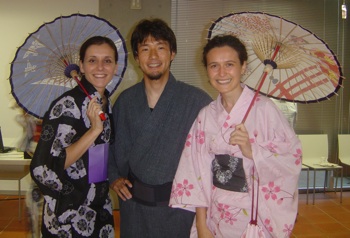 You are currently General Director of the General Directorate for Treasury and Public Debt in the Ministry of Public Finance. What are your main tasks and responsibilities?
You are currently General Director of the General Directorate for Treasury and Public Debt in the Ministry of Public Finance. What are your main tasks and responsibilities?
Since 2007, the directorate mirrors the organization of a financial institution with front, middle and back offices, while being adapted to the specificity of our activity and public policies, according to (mainly) finance and respectively public debt legislation.
The General Director coordinates all activities related to public debt (i.e. origination, negotiation, legal procedures, implementation/execution depending on the financing instrument, reporting, debt servicing). It is also under my responsibility to prepare the Ministry of Public Finance’s positions in relations with other financial institutions and to facilitate communication and dialogue among the different units in the directorate. Throughout this process, it is among my endeavors to ensure further improvement of processes, e.g, through technological enhancements, and activities towards a better use of resources.
Competent human resources are critical for a smooth activity of this department. As a manager, you have also to adapt to these circumstances and motivate your team accordingly. This is not an easy task in a large organization, especially in the public sector. I have been doing my best to promote projects and ideas that would make more use of information technology in order to train more people for the analytical tasks, which bring more value added to the public policies.
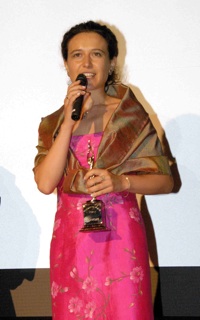 What do you see as the main challenges for Romania over the course of the next five to ten years?
What do you see as the main challenges for Romania over the course of the next five to ten years?
The current global economic and financial crisis has brought challenges on board not only for Romania, but worldwide. The debt crisis unfolding over Europe is clearly a difficult issue for the years ahead. In the long run, challenges are related to our responsibility as an EU member state to implement Europe 2020 strategy and we need to become more competitive, while also increasing living standards. Among others, I would say education and innovation are critical to this end.
What are some of the biggest challenges you face in your work? And what has been the most rewarding aspect of your career thus far?
Working for the public sector is like prisoner’s dilemma. One of the biggest challenges is convincing your partners and colleagues that change would help if all of us cooperated, understood his/her role and professional tasks and performed them accordingly.
It is rewarding to find solutions and seek compromise in difficult circumstances; it requires communication and negotiation skills. As a leader, one could channel the energy and the knowledge of the team, but change requires vision.
I am proud to represent Romania in international meetings and reunions.
What led you to GRIPS? What is the most important thing you got out of your studies here, and how has your experience at GRIPS prepared you for future endeavours?
Well, the answer is simple. First, I wanted to visit Japan. Second, learning more about public policies in Tokyo was close to a dream come true. Studying at GRIPS, sharing views and opinions with colleagues from so different countries were the salt and pepper of my stay in Japan. Through my studies at GRIPS and discussions with fellow students I learned about the common challenges the public sector is facing worldwide and the need to tailor-made policies in a professional way, going back to fundamentals.
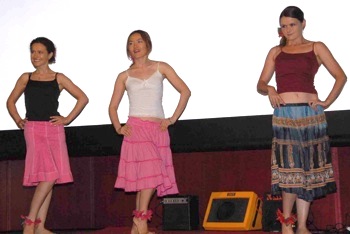 What is your fondest memory of your time spent at GRIPS? And what do you miss about Japan?
What is your fondest memory of your time spent at GRIPS? And what do you miss about Japan?
Fondest memories bring back the time spent with colleagues in the Young Leaders Program, including when preparing for different assignments, but also during study trips and parties . I also treasure the time spent with the International Student Council colleagues organizing student events, our activities promoting the GRIPS Tribune newsletter and finding contributors. And of course, preparing for the big Summer event, the GRIPS Oscar ceremony and rehearsing for our performance, the Kajra Re dance (which was difficult, but Salamat was a great teacher).
I miss Japanese food, and Japanese way of bringing about discipline and harmony in their lives while respecting the environment and the others.
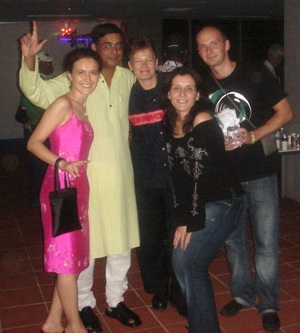 What is your favorite thing to do when you are not working?
What is your favorite thing to do when you are not working?
Staying with my children, (re)discovering life with them in every tiny detail that they are learning or asking me about. With my eldest son, we enjoy playing, painting/coloring, going out to parks or museums, or to various art workshops for children.
Besides, I like travelling, even though there was not enough time to visit places lately. Nevertheless, while on business trips, in Washington and in Astana, it was great to meet friends from GRIPS, colleagues from YLP, and to catch up with news and stories. Our summer holiday in 2011 was in Romania, staying in Viscri, one of the villages with fortified churches under UNESCO heritage.
How do you maintain a balance between your work and the rest of your life?
Balance is the vault key, but it is like dancing on a quite thin string. My children and my family are very important. I always spend time with them in the evenings, during weekends and on holidays. Now is a special period, since I am on maternity leave and we are taking the most of it.
At the same time, doing my job well is a constant pursuit, requiring effort and time. It is challenging. I would say the main element is to keep them separated, while concentrating on each in turns.
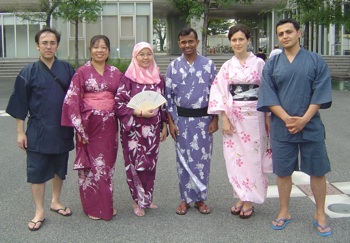 What advice would you give to current GRIPS students?
What advice would you give to current GRIPS students?
Enjoy every moment of your stay in Japan, be it while at GRIPS studying, reading, talking, and debating or outside GRIPS while discovering Japanese culture, eating, traveling, dancing or practicing your hobbies. You would always look back and be fond of these memories, it is a unique experience.
Do you have any suggestions on how to further utilize the GRIPS alumni network?
Using social networks is a must in today’s digital world and I was glad to follow the expansion, if one could say so, of the GRIPS alumni group on Facebook. Nevertheless, we should continue talking and sharing with our friends made during our stay in GRIPS via personal messages. GRIPS alumni should start knowing each other better since their backgrounds have a powerful piece in common, their study period in Japan. The network could be further used to promote GRIPS’ activities and programs, as well as cooperation between our countries in different fields of activities. The GRIPS alumni directory could become, if not there yet, a useful tool to this end.





